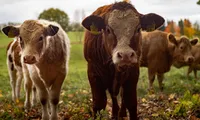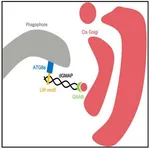Departmental news
GLOBE Policy Brief on ‘Assessing the Role of Digital Finance for Gender Equality’
'Assessing the Role of Digital Finance for Gender Equality’ by Dr Serena Natile, is the latest in a series of briefs, bringing current legal thinking to bear on public policy issues and contemporary concerns, published by GLOBE, a research centre within Warwick Law School.
Artwork Credit: Pawel Kuczyński
Scientists develop a new non-opioid pain killer with fewer side effects
 A promising new non-opioid painkiller (analgesic) with potentially fewer side effects compared to other potent painkillers, has been discovered.
A promising new non-opioid painkiller (analgesic) with potentially fewer side effects compared to other potent painkillers, has been discovered.
A team of scientists, co-led by researchers from the School of Life Sciences, has investigated a compound called BnOCPA (benzyloxy-cyclopentyladenosine), found to be a potent and selective analgesic which is non-addictive in test model systems. BnOCPA also has a unique mode of action and potentially opens a new pipeline for the development of new analgesic drugs.
Press Release (20 July 2022)
Andi Hoxhaj featured in UK Conversation
Warwick Law School's Dr Andi Hoxhaj has written a piece for The Conversation UK (published on the 18 July 2022) on Russia's increasing influence on the Balkans just as the region's fragile peace is threatened.
Consider farmers at individual level when controlling livestock disease outbreaks, researchers say
 Livestock diseases will be better managed by incorporating the behaviours of individual farmers into national infection control policies, according to new research.
Livestock diseases will be better managed by incorporating the behaviours of individual farmers into national infection control policies, according to new research.
The findings are the latest from the BBSRC-funded Farmer-led Epidemic and Endemic Disease-management (FEED) project, an interdisciplinary research group including epidemiologists, mathematical modellers, behavioural scientists and veterinarians from the Universities of Warwick and Nottingham. The research is published this week, in the journal PLOS Computational Biology, in a paper entitled “Modelling livestock infectious disease control policy under differing social perspectives on vaccination behaviour”.
Press Release (15 July 2022)
New insights into how cyanobacteria regulate zinc uptake in the open ocean
Marine cyanobacteria (blue-green algae) are major contributors to the global carbon cycle and are the basis of the food web in many of the world’s oceans. They only require sunlight, carbon dioxide, plus a panel of essential elements, including metals, to sustain life. However, little is known about whether and how cyanobacteria utilize or regulate zinc, an element often considered to be essential to life.
An interdisciplinary research team including Professor Dave Scanlan and Dr Alevtina Mikhaylina, has identified a remarkably efficient regulatory network that controls zinc accumulation in the open ocean cyanobacterium Synechococcus.
Press Release (9 June 2022)
Dr Ming-Sung Kuo cited by the Supreme Court of Canada
Dr Ming-Sung Kuo's 2019 paper ‘Between Choice and Tradition: Rethinking Remedial Grace Periods and Unconstitutionality Management in a Comparative Light’ was cited by the Suprme Court of Cananda in R. v. Albashir ([2021] SCC 48). Congratulations Ming-Sung.
Article by Dr Simon Peplow about the police and "institutional racism"
Dr Simon Peplow has written an article about the police and "institutional racism" for The Conversation, please see further details at: https://theconversation.com/the-police-wont-acknowledge-institutional-racism-in-their-race-action-plan-heres-why-that-matters-183853,
Warwick researchers identify novel cellular process that helps us understand the mechanisms of ageing-related diseases
 A team of researchers led by Professor Ioannis Nezis has identified the molecular and cellular mechanisms that regulate selective autophagy in the fruit fly Drosophila melanogaster.
A team of researchers led by Professor Ioannis Nezis has identified the molecular and cellular mechanisms that regulate selective autophagy in the fruit fly Drosophila melanogaster.
Press Release (31 May 2022)
Dr James Poskett new book release
James Poskett, Horizons: A Global History of Science (Penguin, 2022)
https://www.penguin.co.uk/books/313423/horizons/9780241394090.html
We are told that modern science was invented in Europe, the product of great minds like Nicolaus Copernicus, Isaac Newton, Charles Darwin and Albert Einstein. But this is wrong. Science is not, and has never been, a uniquely European endeavour.
Horizons pushes the history of science beyond Europe, exploring the ways in which scientists from Africa, America, Asia and the Pacific fit into the story. Challenging both the existing narrative and our perceptions of revered individuals, above all this is a celebration of the work of scientists neglected by history.
“Hugely important,” Jim Al-Khalili.
“Revolutionary and revelatory,” Alice Roberts.
Panel discussion on Alumna's recently published paper happens next week
Ruby Turok-Squire, who recently studied on our LLM in International Development Law and Human Rights had her dissertation published in the Journal of International Criminal Law. A panel discussion on her recently published paper will be taking place next week. Find out more about how you can attend.
